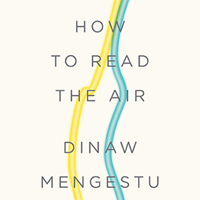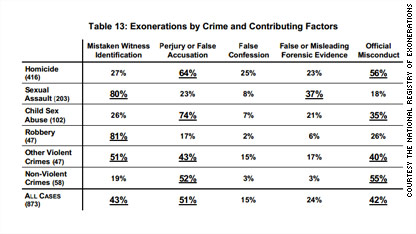Dinaw Mengestu
The Rumpus Interview
With Dinaw Mengestu
By Anne Shulock
October 19th, 2010

Dinaw Mengestu’s name may be hard to pronounce (dih-NOW men-GUESS-too), but you’ll soon be hearing it a lot more. Earlier this year, the Ethiopian-born author was named to The New Yorker’s list of the top 20 fiction writers under age 40, and his second novel, How to Read the Air, was published last week. Like his acclaimed debut, The Beautiful Things That Heaven Bears, the new novel explores the dislocation of African immigrants. This time around, the narrator is Jonas Woldemariam, a withdrawn and slippery character who, following the death of his father and the collapse of his marriage, retraces a road trip his Ethiopian immigrant parents took through the Midwest 30 years earlier. Just don’t believe everything he says.
I caught up with Mengestu last weekend before a reading at The Booksmith in San Francisco, where he talked about the importance of imagination, responded to his “ridiculous” recent New York Times review and lied to my face (by request).
***
The Rumpus: Your background clearly influences your work, so let’s start there. Can you tell me a bit about what it was like in Ethiopia for your family, and when and why you immigrated?

Dinaw Mengestu: I left Ethiopia when I was two years old [in 1980], but my father left just before I was born because, in 1974, there’d been a Communist Revolution and all sorts of bad, unfortunate things happened during that time. The country felt very unstable and insecure at that point, so he and my mother decided together that he needed to leave. My father’s family was very vulnerable—parts were actually part of the Communist government that came into power; others were very much opposed to it since they were losing their family lands and their wealth. My father’s brother was arrested and killed. Other members of his family were thrown into poverty.
Rumpus: Did he take a dangerous, roundabout way into the U.S., as Yosef, the father, does in How to Read the Air?
Mengestu: Nope. He got on a plane, went to Rome for business—he was working for Ethiopian Airlines—and then got asylum. Eventually he settled in Peoria.
Rumpus: In the novel, which is set partly in Peoria, everyone is pretty isolated, dislocated. Was there a particular mindset that this book came out of?
Mengestu: I knew that I wanted to write from the perspective of somebody imagining this family history that they have no real access to. So the book was very much about this process of imagination, the distance between one generation and the next, and the attempts to recreate the past and to write fiction out of that. Jonas, the character who’s controlling the story, is so internally isolated, he’s so walled off from his own past and sense of identity, that the only way he has of achieving any peace is through the process of, “Let me go back and recreate what I don’t know.”
Rumpus: To me, one of the most interesting things about the book is that it’s told in this elusive, conditional voice, like, “I wish that I could tell you this is what happened…” or “If you asked exactly what he was thinking, he would have said…” Why did you approach the novel’s narration in this way?
Mengestu: One, there is a necessity to imagination that I believe in very deeply. Fiction fills a role in our lives that I think nothing else can. When you read a novel, you’re being asked to believe in it as if it were real, to care about these characters as if they really do exist. And second, we wish things often. There’s this desire to wish the world to be a better place, to wish our lives, to wish our parents, to wish our own personal experiences would have happened in a way that was slightly more fulfilling. The narrator is having a real conversation with history that allows him to reform it and reshape it. It keeps the past from being a static, sealed-off event.
But what he’s also doing in the process is he’s putting his father to rest. It’s fiction that serves to bring him closer to someone else and to himself at the same time. And that’s essentially what literature does—it invites you to believe in characters that technically don’t exist, in the hopes of knowing something about yourself at the end.
Rumpus: Central to all these “imagined memories” and revisions is the fact that Jonas is basically a liar—he’s a good liar, and says it comes naturally to him. Are you a good liar?
Mengestu: Of course I’m a good liar—I’m a fiction writer. I could tell you anything.
Rumpus: Can we play Two Truths and a Lie?
Mengestu: Sure.
Rumpus: Ok, tell me three things about yourself.
Mengestu: Um… The first woman I fell in love with broke up with me on my birthday. My sister and I have not spoken to each other in two years. And, if I could live anywhere in the world, it would be by myself in Hawaii.
Rumpus: Hmmm. If she broke up with you on your birthday, that was cold. I’ll go with that one.
Mengestu: All right, you had a 33% chance of getting something right.
Rumpus: I win!
Mengestu: At least there was a consistent tone in all of them. …But I’m always troubled when people want to know what’s real in fiction, to parcel things out into the parts that are true and not true. People always think that [the novels] have a tie to my own personal biography. Really? Because there’s Peoria and I lived in Peoria for six years as a child?
Rumpus: This brings me to a question about the recent New York Times review of How to Read the Air. It was a rave by Miguel Syjuco—
Megestu: You call that a rave? It was bullshit.
Rumpus: He called you “remarkably talented.” But yes, my question is, he ends with the desire to see you write beyond your own experience. Do you think that’s a fair critique?
Mengestu: I think that’s a ridiculous critique. One, I’m not writing directly from my own experiences, I’m writing about people from Africa in America, people in a state of migration; and I’m hardly the first person to have touched on that experience of arriving in America and becoming American.
To say that somehow I need to step beyond that subject, as if it were just a subject, as if you sit down and you write a theme and then you explore that theme in your five-paragraph essay, it’s sort of ridiculous. You write out of characters and you write out of the vast landscape of experiences. In this case, the sense that you “move beyond” the African immigrant experience, as if that experience could somehow be completed or fulfilled—if I wrote 40 more novels, I will not have done justice to the diversity and range that’s possible. All I’m doing is adding small additions to what will be a growing, much larger, much more diverse sense of what it means to write American literature. Because it is American literature, it’s not immigrant literature.

Saul Bellow spent his entire career writing novels that pretty much concern the experience of Jewish American second generations—and obviously I’m not comparing myself to Bellow, but would you say, “Bellow needs to stop writing about that”? No. Philip Roth—“Just get over the Jewishness.” Toni Morrison should get over her African American experience thing in her fiction. And Edward P. Jones, my God, how many times is he going to write about black people in D.C.? It’s absurd.
Rumpus: It seemed a weird judgment.
Mengestu: It’s a weird judgment from somebody who’s also very much writing about his own life in the Philippines. And I’m like, really? Your second book that you’re writing is about Filipinos and the Philippines, so why are you telling me—and I’m not writing biography in any sense. He did a very lazy like, “I’m going to Wikipedia you, and then say that I know what you’re writing out of.”
Rumpus: To the question of novels vs. biography, both of your books have an emotional component of these father-son relationships, and fathers who’ve died. Is your father still alive?
Mengestu: Very much alive. We’re very very close. He lives in Virginia, with my mom. Father-son relationships are just an aperture for me to talk about the fact that we are always affected by history.
Rumpus: Another way that the past seeps into the present in your novels is with the legacy of violence. It’s tied to Africa, but then also has expressions in these personal relationships: Yosef is violent toward his wife; and then there’s a crucial scene in which Jonas forcefully grabs his wife’s wrist.
Mengestu: Violence is very important to this book. That character of the father, he’s not an evil, awful man, but he is a violent and angry man by the time he gets to America. The life that he lived and the process of migration are the things that radically alter him into a man who is capable of a certain brutality. That brutality manifests itself on a domestic level, but its causal source is very much political and tied into the context of political violence in Africa. When he gets to America he’s always trying to release himself, always imagining ways of becoming free; but he’s releasing frustration by beating his wife, beating his child. His son tries to create himself in opposition to that, and is very private and hermited and secluded. But that scene that you pointed out is an expression of the fact that, as hard as he may try to keep that bottled up inside, when there’s a moment for a release he realizes how easily and quickly he can become that man.
Rumpus: Backing up to your first novel, The Beautiful Things that Heaven Bears, your main character is also an Ethiopian immigrant, who owns a corner store in Washington, D.C. What was the inspiration for this character?
Mengestu: It really began because I saw this Ethiopian immigrant behind the grocery store counter, and then the voice of the narrator just kind of sparked right there. Once I had that voice, the opening lines, the tone of melancholy of that voice was very evident.
Rumpus: Both of your books take their titles, and maybe some tonal inspiration, from poetry. The epigraph of How to Read the Air is from Rilke’s Duino Elegies [“You still don’t understand? Throw the emptiness in/ your arms out into that space we breathe; maybe birds/will feel the air thinning as they fly deeper into themselves.”], and “the beautiful things that heaven bears” is a line from the end of Dante’s Inferno. How is poetry important to your work?
Mengestu: I think of both books as being very much in conversation with those poems. Before the novels begin, there’s a certain compulsion to return to certain poems; and then I find shortly afterwards that there’s a novel somehow attached to that. I’d been reading Duino Elegies for years anyway, and there’s a rhythm inside of those few lines that kept coming back into my head. And back when I began writing the [The Beautiful Things That Heaven Bears], I knew there was a very specific concern with beauty and a sense of beauty that was slightly out of reach. Dante is suspended between these two states; he’s out of Hell and he has not reached Heaven, but he’s allowed this glimpse into the paradise that he will eventually travel to. [In the novel], the character is suspended between two places, with a very problematic past, with the sense of longing for something beautiful.
Rumpus: Earlier this year, The New Yorker named you to their “20 under 40” list of the best young fiction writers, which was actually how I first heard of your work. What was it like to get that recognition?
Mengestu: When that first list came out [in 1999], I was in college and just beginning to think of myself as someone who wanted to possibly write, but never having the courage to be like, “I’m going to be a writer.” I spent a lot of my last years in college reading contemporary writing, and that New Yorker list was a great introduction. I read pretty much everyone on that list over the next year. And then of course in the back of your head you’re like, “Wow, it’d be really fucking great if that was ever done again and I was on that list.” As complicated and as fraught as lists like that can be, personally, it’s my dream come true. Totally, unabashedly.
Rumpus: You’ve also written political journalism for magazines like Harper’s and Rolling Stone, and you were back reporting in Africa this summer. What were you doing?

Mengestu: Yes, I was in eastern Congo. I was trying to find some guys with guns to hang out with. No, there’s a rebel militia formed after the Rwandan genocide that’s been in eastern Congo since then, creating a lot of terror and misery. So it was to profile them, basically, because most of what you hear about eastern Congo is reduced to these very quick sound bites of horrific accounts of rape, which are true without a doubt, and exploitation of minerals and mines. This is for Granta.
Rumpus: Aside from that article, what’s next? Now that we’ve established that you can’t write about Africa or immigrants.
Mengestu: Yeah, I’m writing about my suburban housewife experience. It’s a third novel, but it’s in such an early phase it’s very hard to say anything about it other than it sort of begins sometime after the end of the colonial era in Africa. Maybe it ends there. It will be more set in Africa than anything I’ve done before.
Rumpus: Your work grapples with place and identity, and now you live in Paris, so you’re on your third continent. Do you consider yourself an African writer, an African American writer, or just a writer and you wish people would stop asking you to define yourself?
Mengestu: You always consider yourself just a writer, and then definitely an American writer. If there is one country’s sense of national identity and literature that should be broad enough and expansive enough to allow for a multitude inside of that, it should be America.
***
First photograph by David Burnett. Second by Anne Shulock.
Anne Shulock is a journalist living in San Francisco. Her writing has appeared in publications such as The Millions, Salon and Sactown magazine, and she blogs on Open Salon. Most recently she was the editorial assistant at Zoetrope: All-Story, where she searched for the next great short story writer in the slush pile.

















